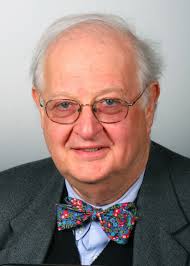The Philadelphia Inquirer had a story today about the most recent Nobel Prize winner in Economics, Angus Deaton. Deaton is a professor at the Woodrow Wilson School of Public and International Affairs at Princeton University.
Deaton’s research has touched on a range of topics as diverse as calorie consumption, health care, suicide, poverty, and the pursuit of happiness. Because of this diversity of interests, Amy Gutmann, president of the University of Pennsylvania, and a former colleague of Deaton’s at Princeton, came up with the perfect phrase to describe Deaton – “an intellectual omnivore”.
The particular area of research that caught my eye was the research Deaton did with Daniel Kahneman (the 2002 winner of the Nobel Prize in Economics and who later authored the best-selling book, Thinking, Fast and Slow) which showed that “emotional well-being” peaks at an income of about $75,000.
This study, which analyzed Gallup surveys of 450,000 Americans in 2008 and 2009, suggested that there were two forms of happiness: day-to-day contentment (emotional well-being) and overall “life assessment,” which means broader satisfaction with one’s place in the world. While a higher income didn’t have much impact on day-to-day contentment, it did boost people’s “life assessment.”
Deaton’s and Kahneman’s research indicated that a person’s day to day happiness (emotional well-being) increases as people earn more money, but only up to $75,000. After that level of income is reached, additional money has no measurable increase in day-to-day contentment.
For people who earn that much or more, individual temperament and life circumstances have much more influence over their emotional well-being than money. However, more money does boost people’s life assessment. People who earned $200,000 a year, for instance, report more overall satisfaction than people earning $100,000.
“Giving people more income beyond $75,000 is not going to do much for their daily mood, but it is going to make them feel they have a better life. … As an economist I tend to think money is good for you, and am pleased to find some evidence for that,” Deaton stated back in 2010 when the research was published.
I have written on the subject of happiness before, and noted how well Scandinavian countries have fared in studies that assessed global happiness. However, I just read a story in the Washington Post that questions some of those happiness ratings. I plan to take a closer look at that story in the near future.
In the meantime, congratulations to Angus Deaton, and best wishes for continued success.


One thought on “An Intellectual Omnivore, and Probably a Happy One”